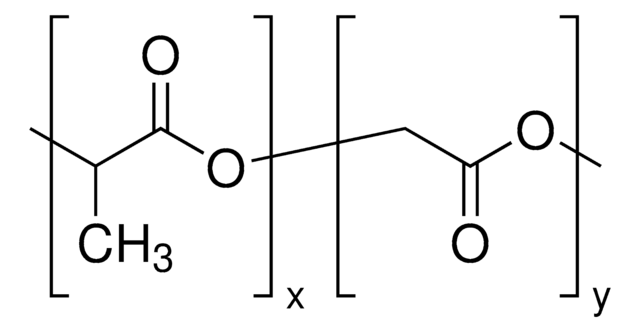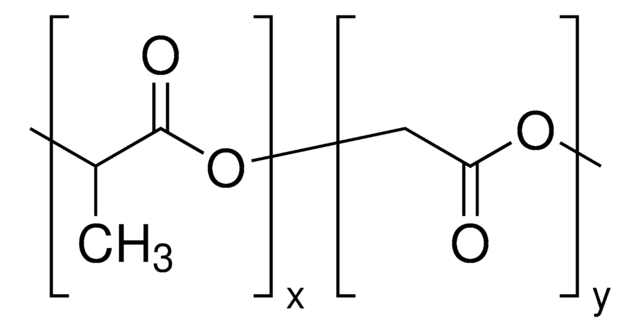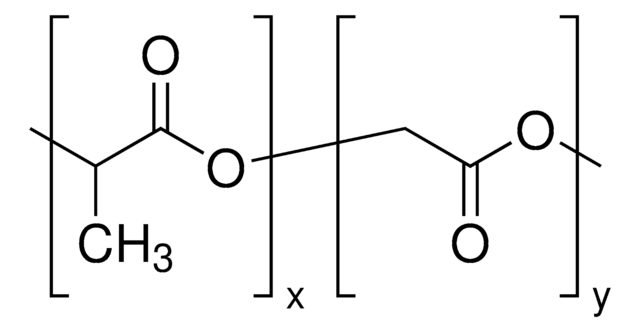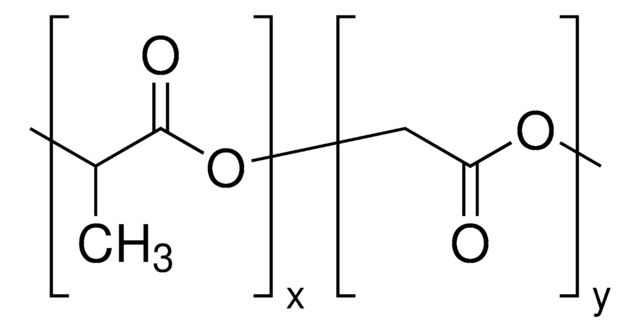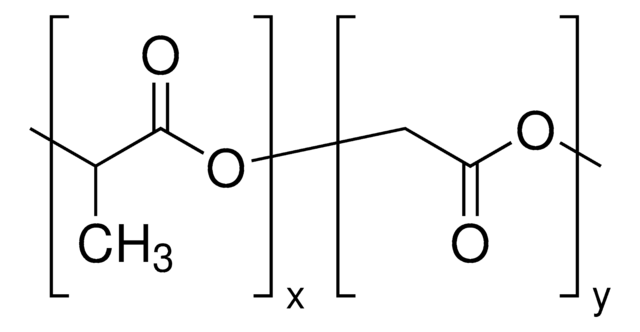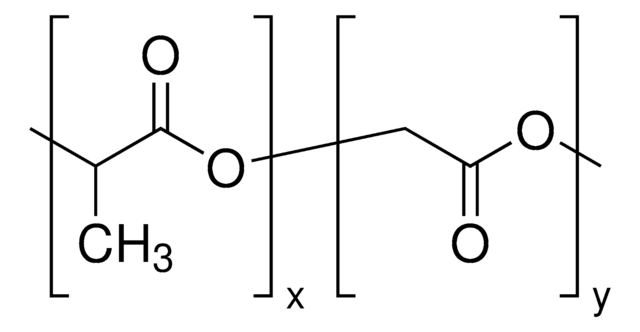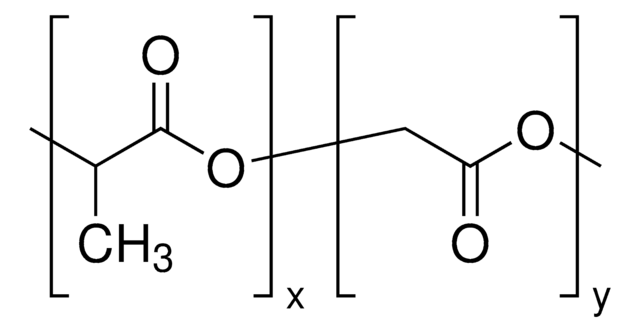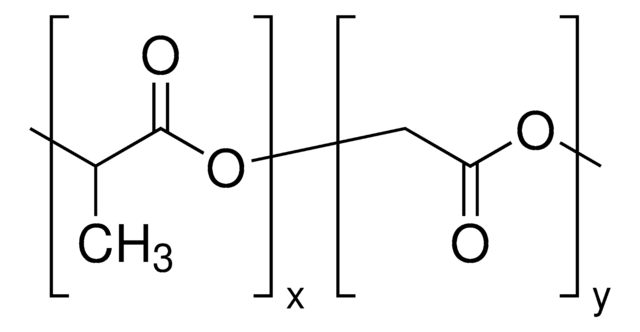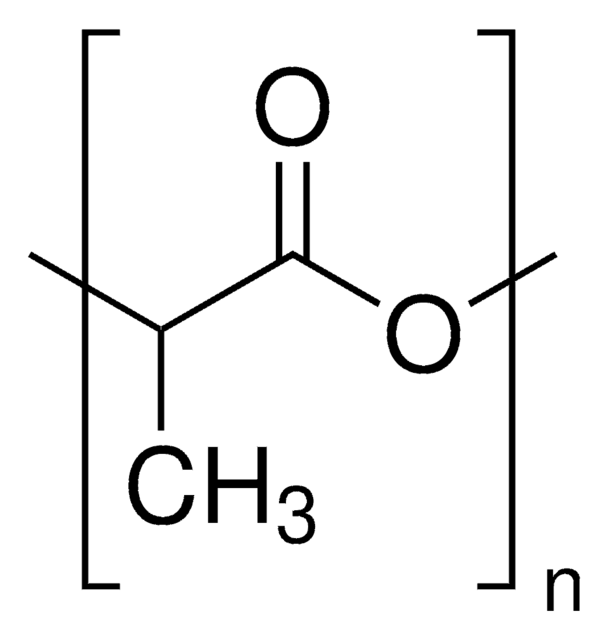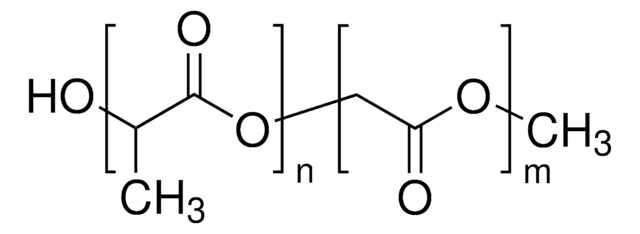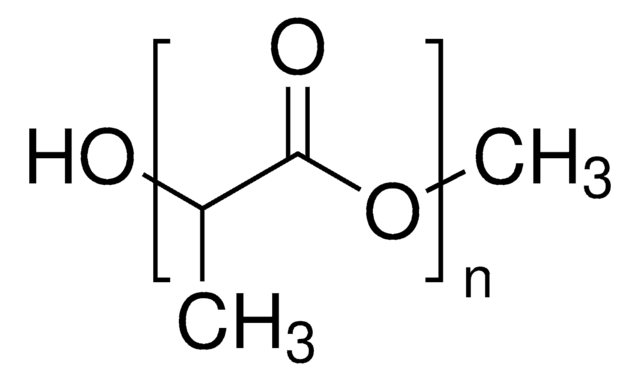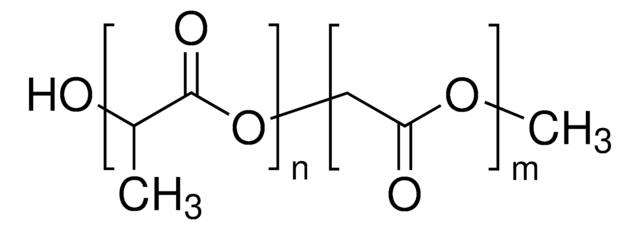推荐产品
品質等級
形狀
amorphous
饋電比
lactide:glycolide 50:50
分子量
Mw 24,000-38,000
降解時間
<3 months
黏度
0.32-0.44 dL/g, 0.1 % (w/v) in chloroform(25 °C, Ubbelohde) (size 0c glass capillary viscometer)
轉變溫度
Tg 44-48 °C
儲存溫度
2-8°C
InChI
1S/C6H8O4.C4H4O4/c1-3-5(7)10-4(2)6(8)9-3;5-3-1-7-4(6)2-8-3/h3-4H,1-2H3;1-2H2
InChI 密鑰
LCSKNASZPVZHEG-UHFFFAOYSA-N
應用
法律資訊
儲存類別代碼
11 - Combustible Solids
水污染物質分類(WGK)
WGK 3
閃點(°F)
Not applicable
閃點(°C)
Not applicable
其他客户在看
商品
Interest in utilizing biodegradable polymers for biomedical applications has grown since the 1960s.
The world of commercial biomaterials has stagnated over the past 30 years as few materials have successfully transitioned from the bench to clinical use. Synthetic aliphatic polyesters have continued to dominate the field of resorbable biomaterials due to their long history and track record of approval with the U.S. Food and Drug Administration (FDA).
Aliphatic polyesters such as polylactide, poly(lactide-co-glycolide) and polycaprolactone, as well as their copolymers, represent a diverse family of synthetic biodegradable polymers that have been widely explored for medical uses and are commercially available.
Aliphatic polyesters such as polylactide, poly(lactide-co-glycolide) and polycaprolactone, as well as their copolymers, represent a diverse family of synthetic biodegradable polymers that have been widely explored for medical uses and are commercially available.
我们的科学家团队拥有各种研究领域经验,包括生命科学、材料科学、化学合成、色谱、分析及许多其他领域.
联系技术服务部门